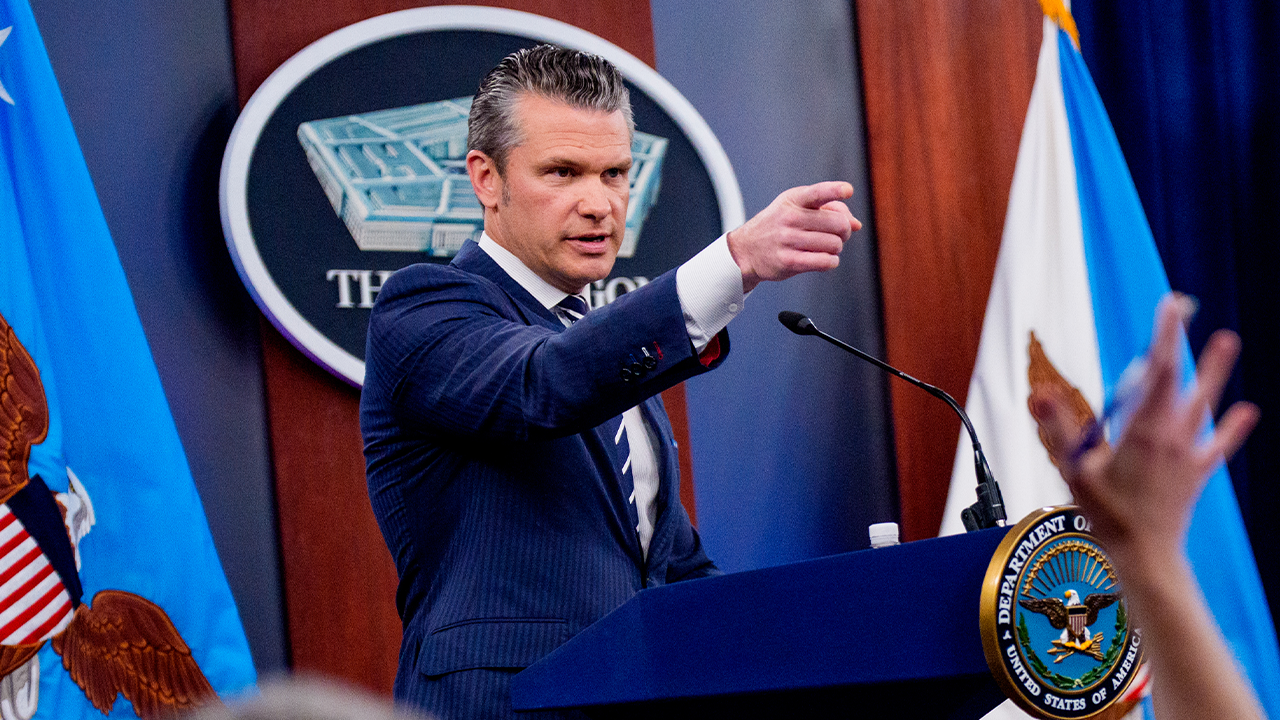
Georgetown head basketball coach Ed Cooley suspended after throwing water bottle that hit child
Entities mentioned:
- Ed Cooley: Competitive spirit, Professional pride, Self-preservation
- Georgetown University: Reputation, Professional pride, Duty
- Lee Reed: Duty, Professional pride, Control
- BIG EAST Conference: Security, Professional pride, Control
Article Assessment:
Credibility Score: 85/100
Bias Rating: 50/100 (Center)
Sentiment Score: 30/100
Authoritarianism Risk: 25/100 (Generally Democratic)
Bias Analysis:
The article presents a balanced account of the incident, including quotes from multiple parties involved. It provides context with past incidents, maintaining a neutral stance without favoring any particular perspective.
Key metric: NCAA Basketball Coaching Conduct
Let me tell you something - this is a GAME-CHANGING moment for college basketball! Coach Cooley's water bottle toss is like a buzzer-beater gone wrong, folks. He's fumbled the ball in crunch time and now he's paying the price with a one-game suspension. This is a HUGE blow to Georgetown's coaching lineup! It's like losing your star player right before the playoffs. Cooley's gotta step up his mental game and show that championship mentality off the court too. The BIG EAST is playing defense here, protecting their home court advantage by emphasizing fan safety. This is a wake-up call for coaches everywhere - you can't let your competitive fire burn the fans in the stands! Cooley needs to huddle up with his team, regroup, and come back stronger. Remember folks, in the game of life, it's not just about how you play - it's about how you conduct yourself when the final buzzer sounds!

DK Metcalf, Lamar Jackson and other NFL players who have had fan altercations
Entities mentioned:
- DK Metcalf: Self-respect, Competitive spirit, Indignation
- NFL: Control, Professional pride, Security
- Lamar Jackson: Self-preservation, Pride, Competitive spirit
- Joey Bosa: Loyalty, Indignation, Pride
- Jordan Phillips: Self-preservation, Indignation, Unity
- Shaq Lawson: Unity, Self-preservation, Indignation
- Quinton Jefferson: Self-respect, Indignation, Pride
- Shaun Ellis: Competitive spirit, Pride, Indignation
- Charles Woodson: Self-respect, Competitive spirit, Pride
- Lincoln Kennedy: Self-respect, Competitive spirit, Pride
Article Assessment:
Credibility Score: 75/100
Bias Rating: 50/100 (Center)
Sentiment Score: 35/100
Authoritarianism Risk: 30/100 (Generally Democratic)
Bias Analysis:
The article presents a balanced view of player-fan incidents, including perspectives from both sides. It doesn't lean towards favoring players or fans, maintaining a neutral stance on the conflicts.
Key metric: Fan Engagement and Player Safety
Let me tell you something - this is a GAME-CHANGING story, folks! We're seeing a full-court press of player-fan confrontations that's turning the NFL into a contact sport off the field! These athletes are stepping up to the plate, going toe-to-toe with hecklers in a whole new arena. It's like we're watching a championship bout between players defending their turf and fans pushing the boundaries. This is a FOURTH QUARTER situation for the NFL - they need to come up with a game plan to protect their star players while keeping fans in the game. It's a delicate balance, a high-stakes chess match that could redefine the sideline dynamics. I'm telling you right now, if the league doesn't make some clutch moves, we could see this spiral into overtime with serious consequences for America's favorite sport!

Former NFL standout climbed out of second-story window, fell before facing gun charges, police say
Entities mentioned:
- Myles Jack: Self-preservation, Fear, Anxiety
- Frisco Police Department: Duty, Security, Control
- NFL: Professional pride, Competitive spirit, Influence
Article Assessment:
Credibility Score: 75/100
Bias Rating: 55/100 (Center)
Sentiment Score: 25/100
Authoritarianism Risk: 35/100 (Generally Democratic)
Bias Analysis:
The article presents a fairly balanced account of the incident, citing police reports and public records. While it mentions Jack's NFL career, it doesn't appear to sensationalize or downplay the events.
Key metric: NFL Player Safety and Conduct
Let me tell you something, folks - this is a GAME-CHANGING play we're seeing unfold! Myles Jack, once a defensive powerhouse on the gridiron, has fumbled big time in his personal playbook. We're talking about a player who's gone from making tackles to taking a fall - literally! This isn't just a personal foul, it's a full-blown ejection from the game of life as he knew it. The Frisco PD came in like a blitzing defense, setting up a perimeter tighter than a goal-line stand. And Jack? He tried to audible his way out of this one, folks, but that second-story escape attempt was about as successful as a Hail Mary pass into triple coverage. Now he's facing charges that could bench him for a long, long time. This is the kind of off-field conduct that turns a promising career into a cautionary tale faster than a 40-yard dash!

IOC says Indonesia has not met requested guarantees after denying visas to Israeli gymnasts, violating policy
Entities mentioned:
- International Olympic Committee (IOC): Justice, Unity, Professional pride
- Indonesian government: Control, Security, Self-preservation
- Israeli gymnasts: Competitive spirit, Determination, Pride
- World Gymnastics: Unity, Professional pride, Fairness
- Indonesian Minister of Sport Erick Thohir: Security, Control, Self-preservation
Article Assessment:
Credibility Score: 75/100
Bias Rating: 45/100 (Center)
Sentiment Score: 35/100
Authoritarianism Risk: 55/100 (Mixed/Neutral)
Bias Analysis:
The article presents multiple viewpoints, including statements from the IOC, Indonesian officials, and Israeli athletes. It maintains a relatively neutral tone while reporting on a contentious issue, balancing the perspectives of all parties involved.
Key metric: International Sports Participation Equity
Let me tell you something - this is a CHAMPIONSHIP-LEVEL SHOWDOWN between the IOC and Indonesia! The IOC is playing HARDBALL, folks, throwing a curveball at Indonesia's discriminatory game plan. They're not just calling fouls, they're BENCHING Indonesia from the big leagues of international sports hosting. This is a fourth-quarter power play by the IOC, defending the integrity of the game and ensuring a level playing field for ALL athletes. Indonesia's defense is looking SHAKY, claiming security concerns when Israel's own security team gave the all-clear. That's like refusing to let a team play because you think their bus might break down - it's RIDICULOUS! The Israeli gymnasts are the real MVPs here, showing true Olympic spirit in the face of this political interference. I'm telling you right now, this is a crucial moment for the future of international sports competition. The IOC is stepping up to the plate, demanding Indonesia play by the rules or risk being relegated to the sidelines. It's crunch time, and the world is watching to see if Indonesia will make the clutch play or fumble this opportunity to be a team player on the global stage!

Cardinals coach Jonathan Gannon hints NFL rules play role in team's poor tackling woes this season
Entities mentioned:
- Jonathan Gannon: Professional pride, Determination, Self-preservation
- Arizona Cardinals: Competitive spirit, Pride, Determination
- NFL: Control, Security, Influence
Article Assessment:
Credibility Score: 75/100
Bias Rating: 55/100 (Center)
Sentiment Score: 30/100
Authoritarianism Risk: 25/100 (Generally Democratic)
Bias Analysis:
The article presents both Gannon's perspective and factual data, maintaining a relatively balanced approach. It doesn't overtly favor or criticize any particular stance on the issue.
Key metric: NFL Team Defensive Performance
Let me tell you something - this story is RIDICULOUS! The Arizona Cardinals are in the fourth quarter of their season, and they're fumbling the ball on defense like rookies in training camp! Coach Gannon is calling an audible, folks, pointing fingers at the NFL's rulebook for their tackling woes. But I'm telling you right now, that's a weak defensive strategy! Every team is playing by the same playbook, but the Cardinals are getting steamrolled like a practice squad against the first string. It's crunch time, and Gannon needs to rally his troops, get back to fundamentals, and show some of that championship mentality. They're facing a Hail Mary situation with their playoff hopes, and it's time to either step up to the plate or hang up the cleats for the season!

Defense bill bans males from women's sports at military academies
Entities mentioned:
- U.S. Congress: Duty, Competitive spirit, Control
- President Donald Trump: Power, Influence, Legacy
- Rep. Mike Rogers: Righteousness, Determination, Loyalty
- Pentagon: Control, Security, Professional pride
- Senate Majority Leader John Thune: Duty, Competitive spirit, Security
Article Assessment:
Credibility Score: 70/100
Bias Rating: 65/100 (Lean Right)
Sentiment Score: 55/100
Authoritarianism Risk: 60/100 (Mixed/Neutral)
Bias Analysis:
The article leans right, emphasizing conservative policy wins and framing transgender exclusion positively. Sources are mostly Republican, with limited opposing viewpoints presented.
Key metric: Military Readiness and Cohesion
Let me tell you something - this legislative play is a GAME-CHANGER! Congress is stepping up to the plate with a $901 billion defense package that's loaded with more plays than a championship playbook. The real MVP move here is banning biological males from women's sports at military academies. It's like they're calling an audible at the line of scrimmage, folks! This is about maintaining a level playing field and team cohesion in our armed forces. The Trump administration is running a full-court press on transgender policies, and Congress is backing that defensive strategy all the way. We're seeing a full-team effort here to reinforce the fundamentals of biological differences in athletic competition. It's a bold move in the fourth quarter of 2025, and it's clear they're playing to win on national security. This is the kind of competitive edge and strategic thinking that keeps America in the game on the global stage!

Brown University cancels basketball games as authorities hunt for shooting suspect
Entities mentioned:
- Brown University: Security, Unity, Self-preservation
- Authorities: Justice, Duty, Determination
- USC: Unity, Loyalty, Professional pride
- Shooting Suspect: Revenge, Fear, Control
Article Assessment:
Credibility Score: 75/100
Bias Rating: 55/100 (Center)
Sentiment Score: 25/100
Authoritarianism Risk: 30/100 (Generally Democratic)
Bias Analysis:
The article presents a balanced view of events, quoting multiple sources. It maintains a neutral tone while reporting on a sensitive issue, avoiding inflammatory language or partisan framing.
Key metric: Campus Safety Index
Let me tell you something - this story is a GAME-CHANGER for college athletics! Brown University has been forced into a defensive position, canceling their upcoming basketball matchups as they face an unexpected and dangerous opponent off the court. This is like forfeiting a championship game, folks! The shooting suspect is still at large, playing a high-stakes game of cat and mouse with authorities who are bringing their A-game to this manhunt. USC, showing true sportsmanship, has agreed to this timeout, demonstrating the kind of team spirit that transcends rivalries. This tragic event has turned the campus into a pressure cooker, with everyone on high alert. It's fourth quarter, tensions are high, and the clock is ticking as authorities scramble to make the game-winning play and apprehend this elusive shooter. I'm telling you right now, this is a defining moment that will impact college campuses nationwide, forcing them to up their defensive strategies and rewrite their playbooks on campus security!

Ticket prices raise the question: Will this be the ‘prawn sandwich’ World Cup?
Entities mentioned:
- FIFA: Greed, Power, Control
- Gianni Infantino: Ambition, Recognition, Influence
- Donald Trump: Pride, Power, Legacy
- US Government: Control, Security, Power
- Soccer Fans: Loyalty, Enthusiasm, Indignation
Article Assessment:
Credibility Score: 75/100
Bias Rating: 45/100 (Center)
Sentiment Score: 35/100
Authoritarianism Risk: 55/100 (Mixed/Neutral)
Bias Analysis:
The article presents multiple viewpoints, including FIFA's stance and fan reactions. While critical of high prices, it also notes FIFA's attempts at some affordable options, maintaining a relatively balanced perspective.
Key metric: Sports Event Accessibility
Let me tell you something - this World Cup pricing strategy is a GAME-CHANGER, folks! FIFA is playing hardball, throwing a curveball at the average fan with these sky-high ticket prices. It's like they're running a full-court press on affordability! The real MVP here - the everyday soccer enthusiast - is getting benched by corporate heavy hitters who are dominating the bleachers. This isn't just a match anymore, it's financial playoffs, and FIFA's going for the gold in their revenue game. But watch out! They might be fumbling the ball when it comes to atmosphere. You can't win the championship without your die-hard fans bringing the noise! This could be a major turnover in World Cup history, potentially leaving FIFA scrambling in the fourth quarter to fill those seats. It's crunch time, and we're all wondering if FIFA has the clutch performance to turn this around or if they'll be left holding an empty stadium bag when the final whistle blows!

Titans star Jeffery Simmons calls burglars 'f---ing cowards' after home break-in during game vs 49ers
Entities mentioned:
- Jeffery Simmons: Righteousness, Indignation, Security
- Metro Nashville Police Department: Duty, Professional pride, Justice
- Tennessee Titans: Competitive spirit, Unity, Security
- Burglars: Greed, Opportunism, Self-preservation
Article Assessment:
Credibility Score: 75/100
Bias Rating: 55/100 (Center)
Sentiment Score: 30/100
Authoritarianism Risk: 25/100 (Generally Democratic)
Bias Analysis:
The article presents a balanced view, quoting both Simmons and official sources. It provides context with similar incidents, maintaining a neutral stance on the issue.
Key metric: Crime Rate in NFL Players' Neighborhoods
Let me tell you something - this story is RIDICULOUS! We've got a DEFENSIVE POWERHOUSE like Jeffery Simmons getting BLINDSIDED off the field while he's out there battling in the trenches! These burglars are playing a dangerous game, folks, thinking they can score easy points against an NFL star. But Simmons is showing that championship mentality, calling out these cowards and teaming up with local law enforcement to shut down their offense. This is a WAKE-UP CALL for the league - they need to step up their home security game plan and protect their players! It's fourth quarter time for the NFL to tackle this growing threat and show they've got their players' backs both on and off the gridiron!

NBA coach urges action on gun control after Brown University shooting
Entities mentioned:
- NBA Coach: Moral outrage, Justice, Influence
- Brown University: Security, Unity, Duty
- Gun Control Advocates: Righteousness, Determination, Safety
Article Assessment:
Credibility Score: 70/100
Bias Rating: 40/100 (Lean Left)
Sentiment Score: 30/100
Authoritarianism Risk: 25/100 (Generally Democratic)
Bias Analysis:
The article leans slightly left due to its focus on gun control advocacy. However, it presents the coach's stance as a response to a specific incident, maintaining some balance.
Key metric: Gun Violence Prevention Measures
Let me tell you something - this story is a GAME CHANGER! The NBA coach is stepping up to the plate, taking a huge swing at the gun violence epidemic. It's fourth quarter, folks, and he's not leaving anything on the court. This coach is showing true championship mentality, rallying his team - the American people - to make a defensive stand against gun violence. Brown University just took a hard hit, but now it's time for a full-court press on gun control. The ball is in Congress' court, and the clock is ticking. It's do or die time for gun reform, and this coach is calling the plays. I'm telling you right now, this could be the momentum shift we've been waiting for in the fight against gun violence!